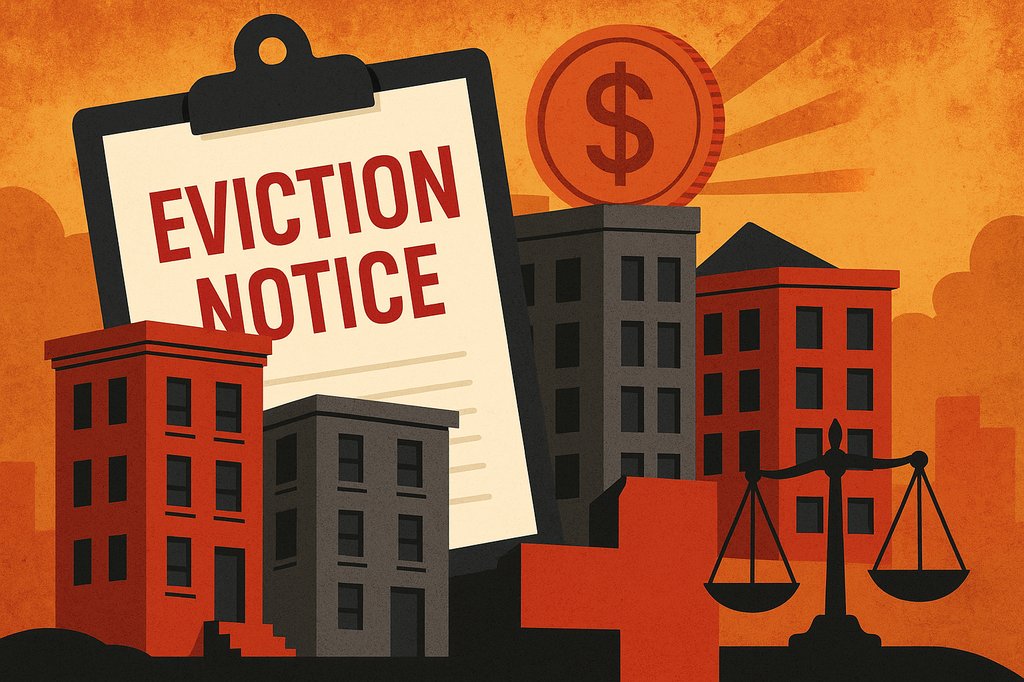Applicant Fraud Uncovered: How to Protect Your Communities
In recent years, the multifamily sector has experienced a notable increase in applicant fraud, which poses a crucial challenge for property managers striving to protect their properties. With advanced technology and digital tools making document forgery easier than ever, fraudulent applications have become more prevalent and sophisticated.
So, how are applicants committing fraud, and how can property managers tackle this issue?
How applicants are committing fraud
Applicant fraud is when an individual provides fake or misleading information to gain access to a property and secure a lease. Applicants typically resort to this when their legitimate credentials are insufficient to get approved for the property they want.
The most common forms of applicant fraud include:
- Fake Employment: Citing non-existent employers or giving fake job verification
- False Income Statements: Prospective tenants may alter pay stubs or bank statements to exaggerate their income
- Misrepresented Rental History: Including false references or forging eviction histories to appear as suitable renters
- Identity Fraud & Theft: Taking another individual’s identity, commonly via fake IDs and stolen Social Security numbers, to apply for rental units
But how are they doing it?
- Text Insertion: Editing an income document to falsely increase their financial standing.
- Pay Stub and Bank Statement Templates: Online templates made to look like popular payroll and bank providers.
- Social Engineering: A scammer provides tips to an individual on how to alter documents, or they provide workarounds to try to avoid a fraud detection system altogether.
The effect of fraud can be catastrophic, often leading to property damage, financial losses, tarnished reputation, and legal issues.
How big is the problem?
According to a 2024 National Multifamily Housing Council survey of property owners and property managers, there was an estimated 40% increase in fraudulent applications in their portfolio in the past 12 months compared to the previous 12 months.
Here are some additional eye-opening statistics:
- A TransUnion 2023 survey of property managers noted that 60% had fallen prey to fraud in the last two years — with altered documentation being the main challenge for 84% of survey participants.
- A 2020 Snappt survey revealed that approximately 53% of property managers encountered fraudulent rental applications, a dramatic increase from previous years.
While AI technology helps property managers catch fraud, it has also made it easier to craft convincing counterfeit documents. Identity theft and synthetic identity fraud – a situation in which real and fake information is combined to create a new identity – are exceptionally challenging for property managers to catch without appropriate measures in place.
Additionally, worried applicants may feel extra pressure to exaggerate their qualifications to stand out in a sea of competition, leading to a surge in fraudulent applications. Some property managers in large metropolitan areas have reported higher incidence rates, especially in large urban areas where the rental market is incredibly competitive. Fraudsters hoping to secure high-value rental housing might also more often target properties with higher rental rates (or even luxury amenities).
New forms of fraud continue to emerge regularly, with the latest being deemed “Inception Fraud.” Discovered earlier this year by the Snappt team, this occurs when an applicant provides a legitimate pay stub from a legitimate company, even though they don’t actually work there or receive a salary from them. This malicious type of fraud is impossible to detect without qualified fraud detection technology and extensive training.
Tips for identifying fraud and what to look out for
Property managers can significantly reduce the chances of being duped by untrustworthy applicants by taking proactive measures.
Here are a few considerations to keep in mind:
1. Educate yourself
Familiarizing yourself with typical fraudulent document practices can aid in identifying warning signs. Research common fraudulent renter tactics, such as providing fake contact information for references. Also, stay current on the latest industry trends in document fraud to help protect your investment.
2. Thoroughly screen your applicants
The first line of protection against fraudulent documents is to use a comprehensive tenant screening strategy and process. This should include detailed background checks, credit checks, and job verification. When renters know you require a meticulous screening process, they are less likely to engage in fraudulent behavior. Also, ensure your rental application clearly describes your requirements for proper documentation and background checks.
3. Verify, verify, verify
When reviewing renter applications and related documents, always take your time and verify renter information. Confirm that the application details—like employment history, income, and previous residences—align with the provided documents. These can include bank statements, paycheck stubs, and references. Disparities in any of these documents can be a red flag.
4. Implement fraud detection
Implementing comprehensive fraud detection is the best way to safeguard your property. Effective fraud detection software can identify inconsistencies or suspicious details in rental applications and income documents, such as verifying the authenticity of IDs, pay stubs, and bank statements. The strongest defense will include document fraud detection, ID verification, and income verification. Better yet, find a fraud detection provider that not only has the technology to catch these fraudsters but also proactively researches new trends and tactics used to commit fraud.
Protect your communities
Fraudulent rental applications are becoming more widespread, requiring property managers to take robust and adaptive measures.
Busy property managers shouldn’t have to suddenly become forensic experts during the screening process to identify fraudulent behavior. For optimal efficiency and ease, it is recommended to collaborate with a fraud detection company.
By employing a combination of fraud detection and thorough screening, property managers can stay vigilant, better protect their communities, and maintain the integrity of their rental properties.
Written by Daniel Berlind, CEO of Snappt
Daniel Berlind is the visionary CEO behind Snappt, a game-changing AI-enabled fraud detection software that’s revolutionizing the multifamily housing industry. Daniel co-founded Snappt in 2019 after witnessing firsthand the pervasive issue of fraud within the multifamily rental market during his time running his own property management company. Snappt not only simplifies and streamlines the application process but also tackles bad debt head-on, boosts asset value, and drastically reduces the time it takes to review applications. In addition to Snappt, Daniel serves as the President of Berlind Properties and oversees the portfolio management and daily operations.










